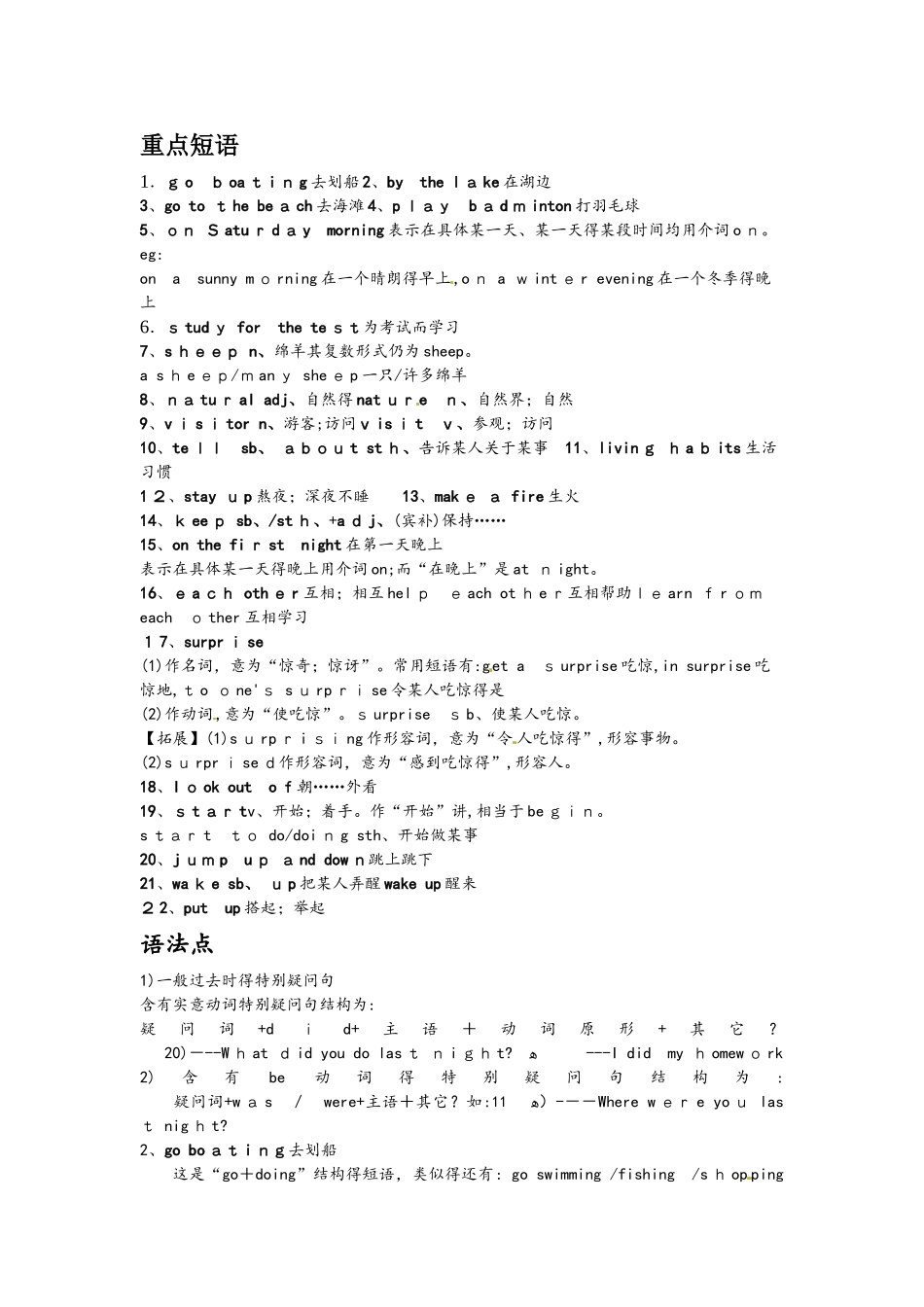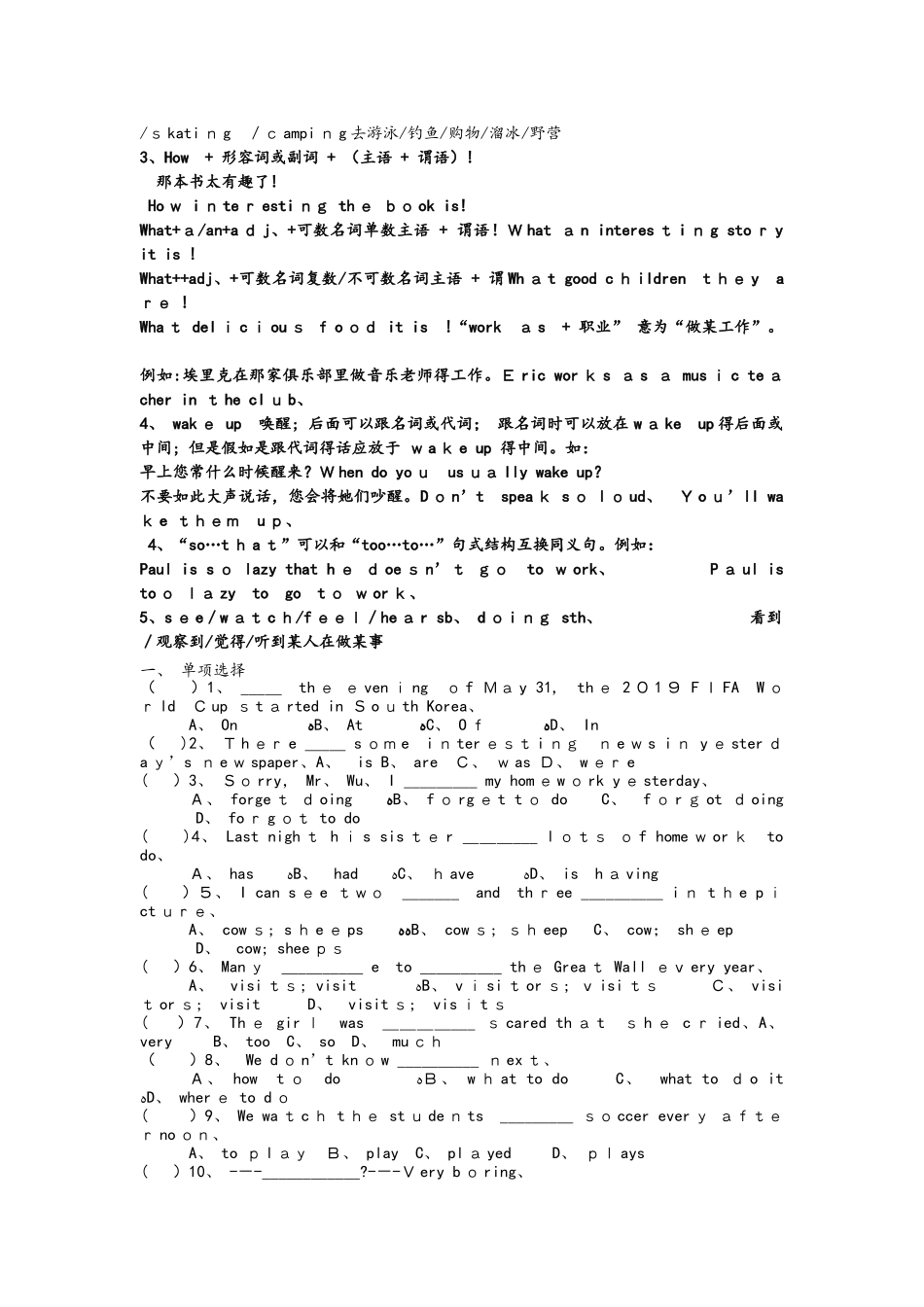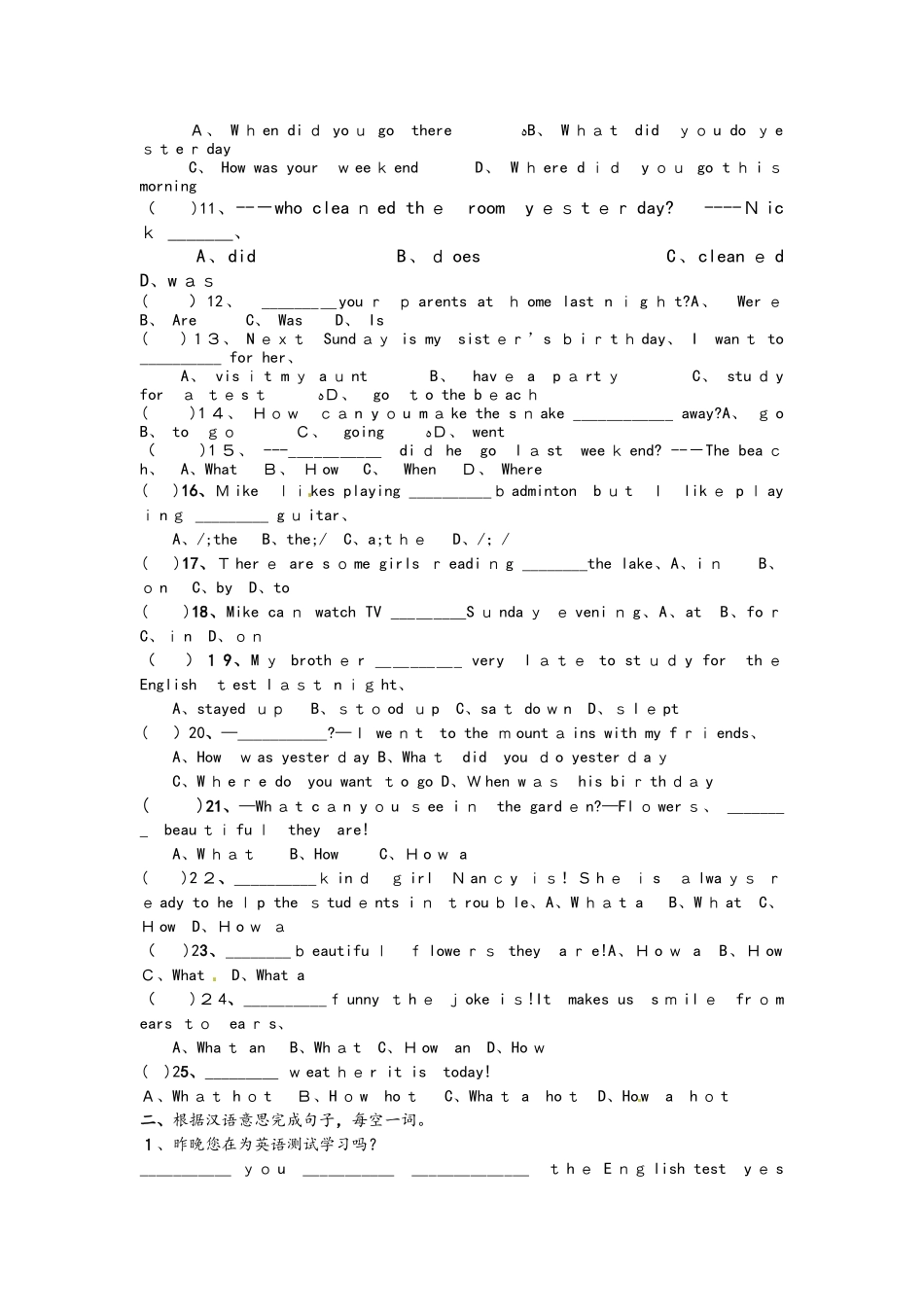重点短语1.g o b oa t i n g 去划船 2、by the l a ke 在湖边3、go to t he be a ch 去海滩 4、p lay b a d m inton 打羽毛球5、on S atu r d a y morning 表示在具体某一天、某一天得某段时间均用介词 o n。eg:on a sunny m o rning 在一个晴朗得早上,o n a w int e r evening 在一个冬季得晚上6.s tud y for the te st为考试而学习 7、s heep n、绵羊其复数形式仍为 sheep。a s h e ep/m an y she e p 一只/许多绵羊8、na tu r al adj、自然得 nat ure n、自然界;自然9、v i s i tor n、游客;访问v is i t v、参观;访问10、te ll sb、 abou t st h、告诉某人关于某事 11、livin g h a b its 生活习惯1 2、stay u p 熬夜;深夜不睡 13、mak e a fire 生火14、k ee p sb、/st h、+a d j、(宾补)保持……15、on the fi r st night 在第一天晚上表示在具体某一天得晚上用介词 on;而“在晚上”是 at n ight。16、e a ch oth e r 互相;相互 hel p e ach ot h e r互相帮助le arn f r om each o ther 互相学习1 7、surpr i se(1)作名词,意为“惊奇;惊讶”。常用短语有:get a s urprise 吃惊,in surprise 吃惊地,t o o ne's s u rp ri se 令某人吃惊得是(2)作动词,意为“使吃惊”。s urprise s b、使某人吃惊。【拓展】(1)s u rp r i si ng 作形容词,意为“令 人吃惊得”,形容事物。(2)s u rpr i se d作形容词,意为“感到吃惊得”,形容人。18、l o ok out o f朝……外看19、s t ar tv、开始;着手。作“开始”讲,相当于 be gin。s tar t to do/doi n g sth、开始做某事20、j um p u p a nd dow n跳上跳下21、wa k e sb、 u p 把某人弄醒 wake up 醒来2 2、put up 搭起;举起语法点1)一般过去时得特别疑问句含有实意动词特别疑问句结构为:疑问词+did+主语+动词原形+其它? 20)---W h at d id you do las t n i gh t? ﻫ ---I did my h omew o rk2)含有be动词得特别疑问句结构为: 疑问词+w a s / were+主语+其它?如: ﻫ11)---Where ...


